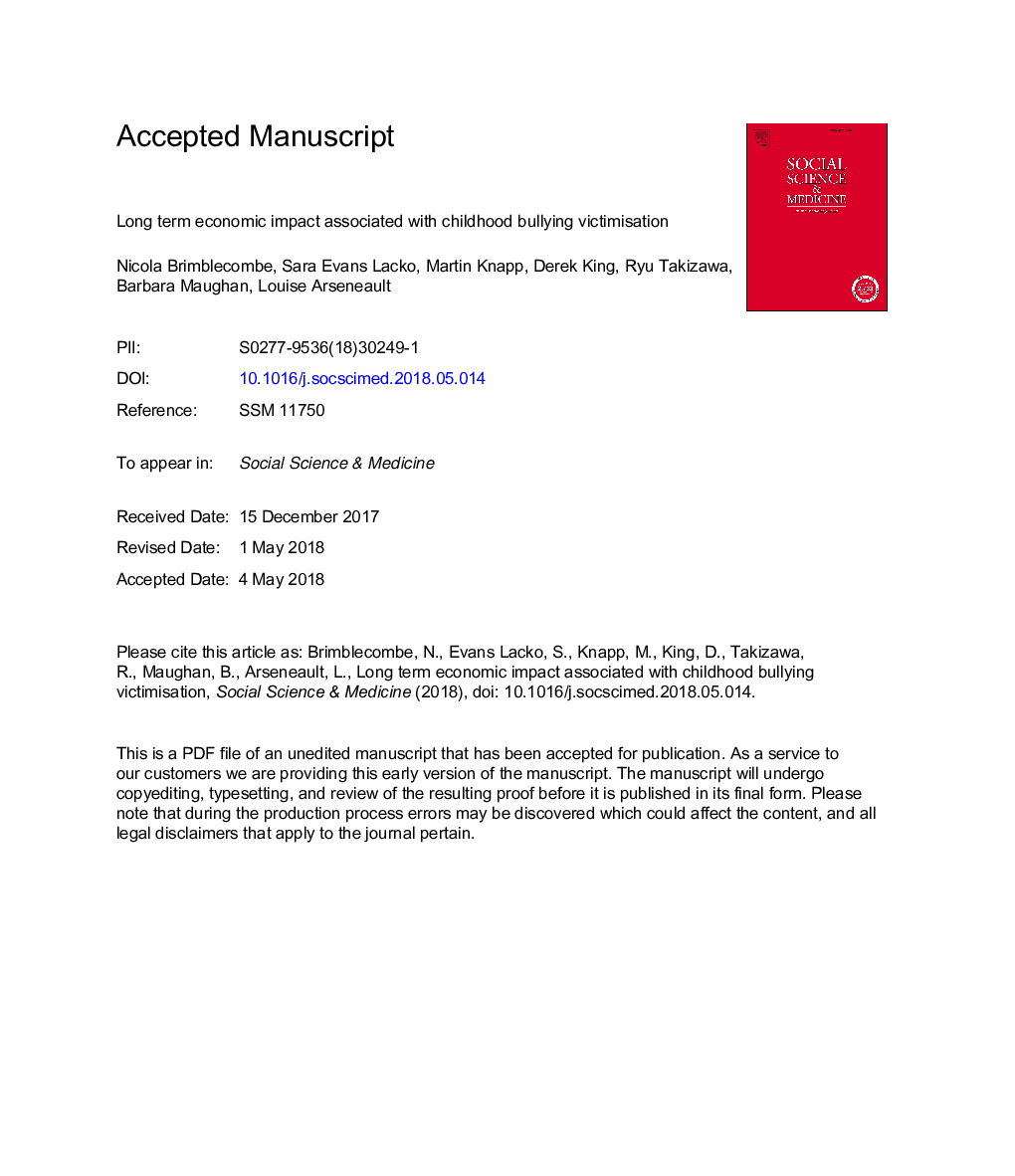| Article ID | Journal | Published Year | Pages | File Type |
|---|---|---|---|---|
| 7327700 | Social Science & Medicine | 2018 | 29 Pages |
Abstract
Being bullied is associated with mental health problems in childhood, with increasing evidence of persisting negative impacts, and increased mental health service use, into adulthood. There are also impacts of bullying victimisation on employment, income and being in poverty, but little is known about the long-term economic impacts. We therefore aimed to estimate the most important economic consequences at age 50 of being bullied in childhood: to our knowledge this is the first study that does so. Using 1958 British birth cohort data collected in 1965, 1969, 1991, 2003 and 2008 (study samples size 7323-9242), we find substantial and durable individual and societal economic impacts four decades after the childhood bullying occurred. Both men and women who were bullied in childhood were less likely to be in employment and had accumulated less wealth in the form of home-ownership or savings than participants who were not bullied. Individual earnings from paid employment were lower for women who were bullied in childhood. Frequent bullying in childhood was also associated with higher societal employment-related costs for men and higher health service costs for women. Our findings underline the importance of preventing bullying in childhood and, as the consequences are so long-lasting and pervasive, supporting people still experiencing the negative consequences in the decades that follow.
Related Topics
Health Sciences
Medicine and Dentistry
Public Health and Health Policy
Authors
Nicola Brimblecombe, Sara Evans-Lacko, Martin Knapp, Derek King, Ryu Takizawa, Barbara Maughan, Louise Arseneault,
